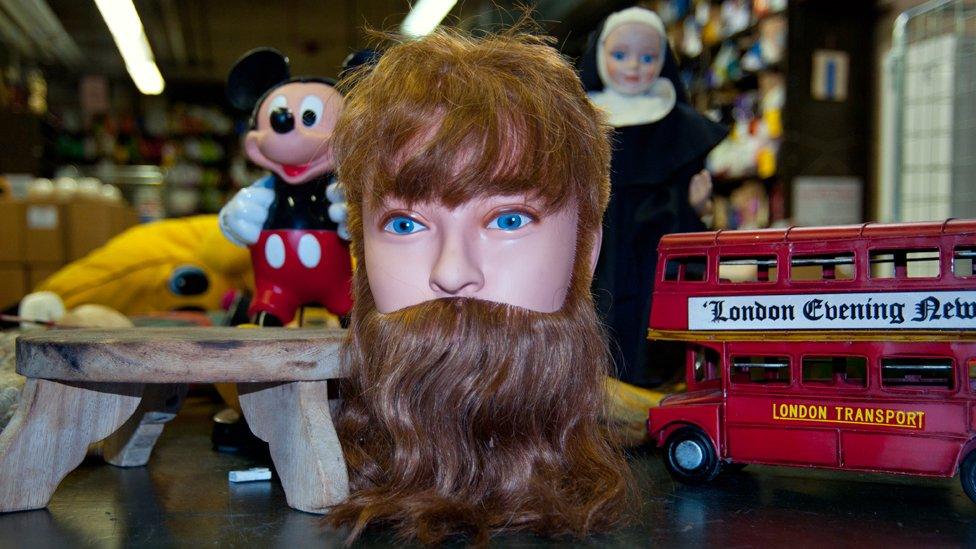What happens to property lost on public transport?
- Published
Meet the lost property detectives
Ever wondered what happens when you lose something on public transport? If you don't reclaim your belongings, chances are they will still find a good home.
Travel through the City of London and you'll spot St Paul's Cathedral. You'll likely pass the Central Criminal Court - otherwise known as the Old Bailey - and the world-renowned St Bart's Hospital.
Sandwiched between them is the lesser-known City Thameslink railway station.
Below ground as you descend the escalator to platform two, you'll see a little window with a sign to the lost property office. It's only open on weekdays until 3pm.
Step inside and you'll find an array of items left behind by passengers heading to exotic destinations such as Gatwick and Peterborough.
The bulkiest items catch your eye first - suitcases, jackets and an array of musical instruments.
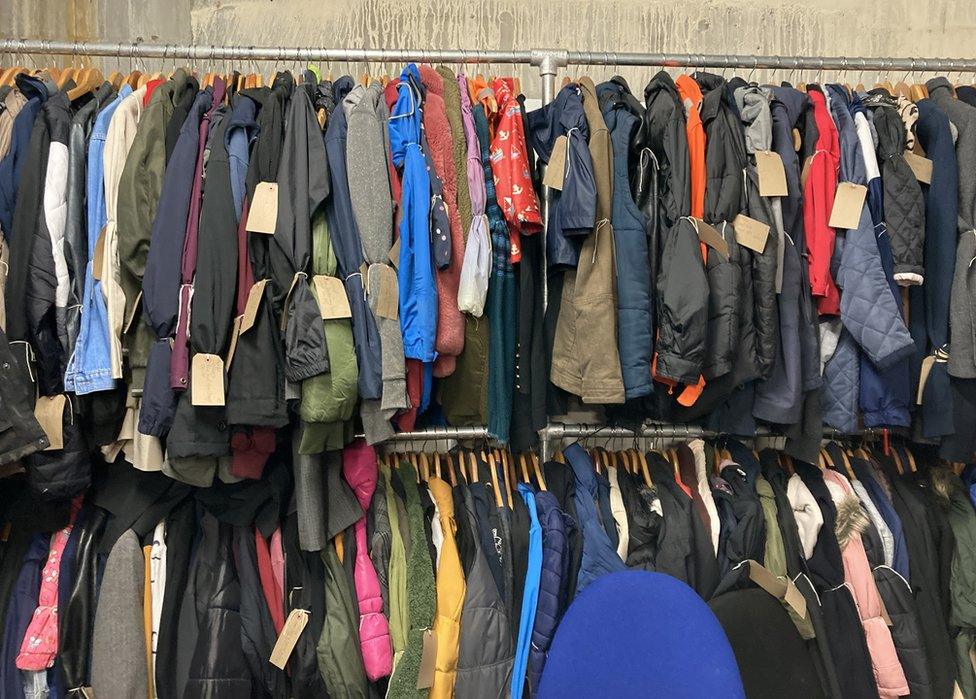
Lurking behind the piles of luggage are water pistols, bicycle wheels and hard hats.
Helping people get their belongings back is Roy Warboyes, who spent 26 years working for the Metropolitan Police, mostly in east London where he grew up.
His job meant he had plenty of experience of logging items seized from suspects or at crime scenes. However, unlike in his previous role, the property which arrives in this office is not being used in evidence.
"This is a little bit more rewarding," he says with a smile.
As we make our way through the beanbags, fishing rods and pillows that litter the office, Roy opens a cabinet bursting with all manner of electronics.
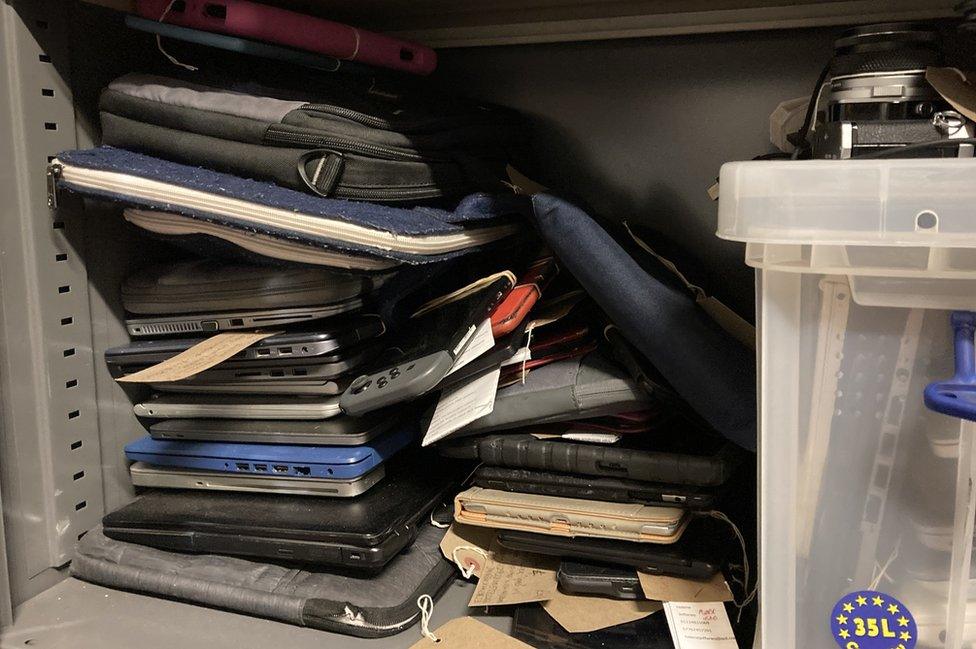
What's the weirdest item left behind, though?
"For me, it was the chest of drawers, but I believe at [Southeastern's lost property office] Cannon Street they had an artificial leg.
"We've had cannabis grinders, fungus cake and sandwiches come in."
Like bank cards, food is destroyed on arrival. Unfortunately, vomit-covered or dirty items have to be stored in case somebody does come in to reclaim them.
Phones, wallets and Oyster cards are the things most commonly left behind lost property although many go unclaimed.
One little-known aspect of the process is that "losers" - as they are sometimes affectionately referred to - have to pay at least £3 to collect an item.
As a general rule, the bigger or more valuable the item, the more you pay. A provisional driving licence £2 is cheaper to reclaim than a full one (£7).

Thameslink collection fees
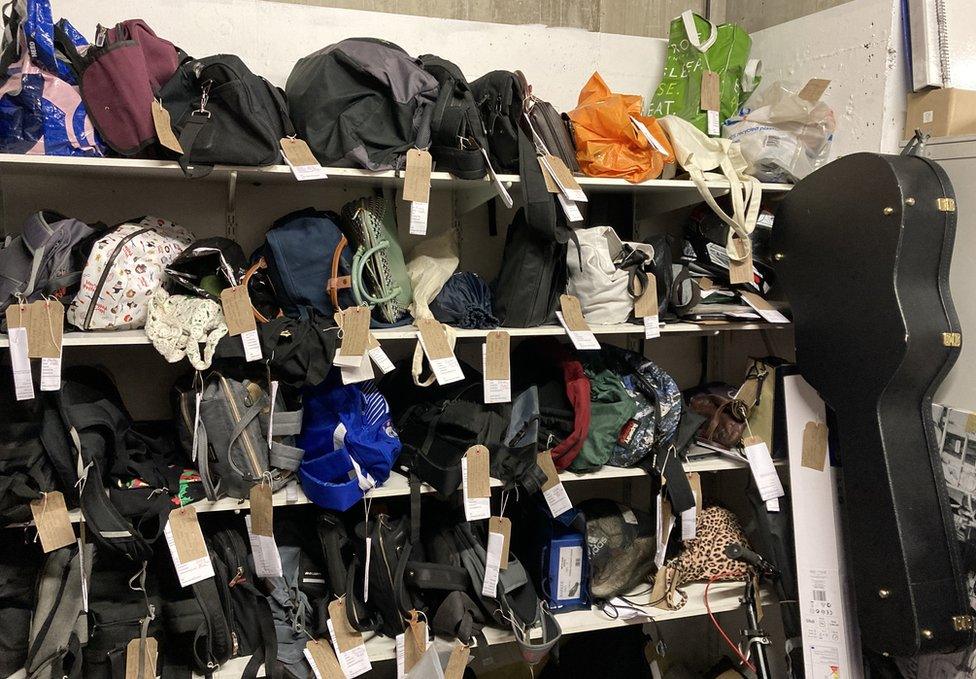
£3: Rucksacks, holdalls, shoulder bags, tripods, tents, wallets/purses, glasses, hats, scarves, gloves, coats, brollies, keys
£5: Suitcases, provisional driving licences
£7: Passports, driving licences
£10: iPods, Kindles, small cameras, mobile phones
£20: Musical instruments, iPads, laptops, motorbike helmets

Collection fees, as set out in the National Rail Conditions of Carriage, external, were first introduced in 1993 but haven't changed since 2006.
They allow train operators to charge up to £2 a day for storing items up to a maximum of £30.
The Rail Delivery Group says these charges are because "the costs of storing valuable items and returning them to their owners can vary".
As well as the fees set out above, Thameslink takes a 10% cut of any cash left in wallets and purses.
"We had a woman who lost a Louis Vuitton bag containing £1,500," says Roy, "so the station rightly removed the £1,500 but gave us a cover note.
"When getting it back she paid £150 but she was more than happy because although she's lost £150, she's not lost £1,500."
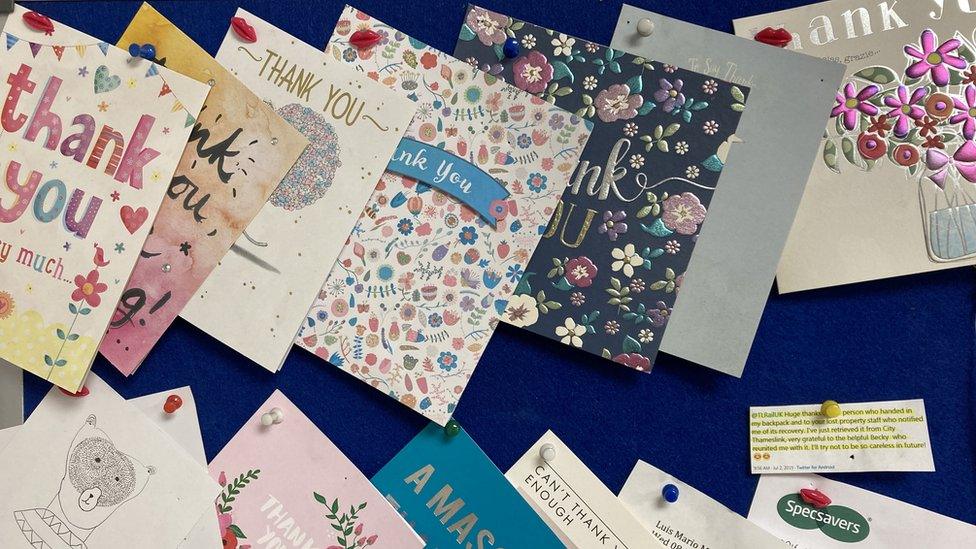
People still write cards - as well as giving thanks online
Other customers are less willing to pay. "We had a gentleman this morning, who didn't have any cash on him," Roy says.
"I managed to find his two bags that he lost; he went away to get some money and then came back and said his only way of getting money is in the bags as his bank cards were in there.
"So I said to him, 'I'll give you the bags, but it's now up to you whether you come back and pay - it's up to your conscience.'
"That's the last we saw of him!"
Sometimes items are despatched abroad, to countries including Sweden, Portugal and the Czech Republic.

Lost items by year
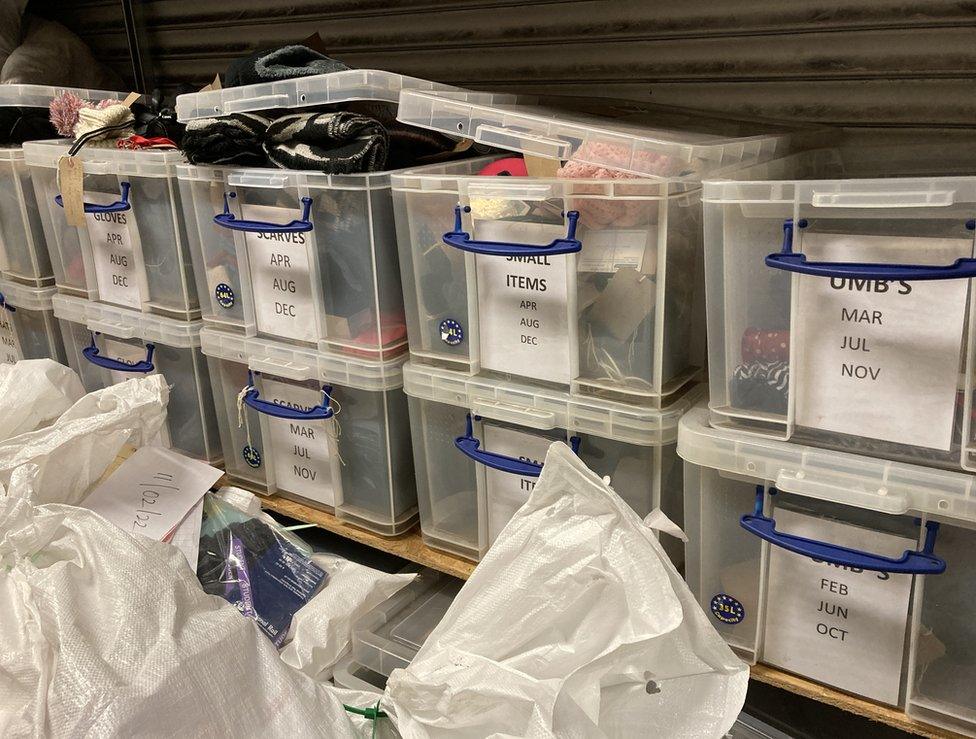
2019: 9,793
2020: 4,215
2021: 3,431
Source: Thameslink

After three months and a day in the office, lost items are either disposed of, recycled (mostly electronics), while belongings in better condition are sent to a range of charities.
One of the beneficiaries is Noah Enterprise, which helps homeless and vulnerable adults find housing and access benefits.
Philip Crawley, the welfare centre manager at the Luton-based charity, says the clothing donations in particular can provide a welcome boost.
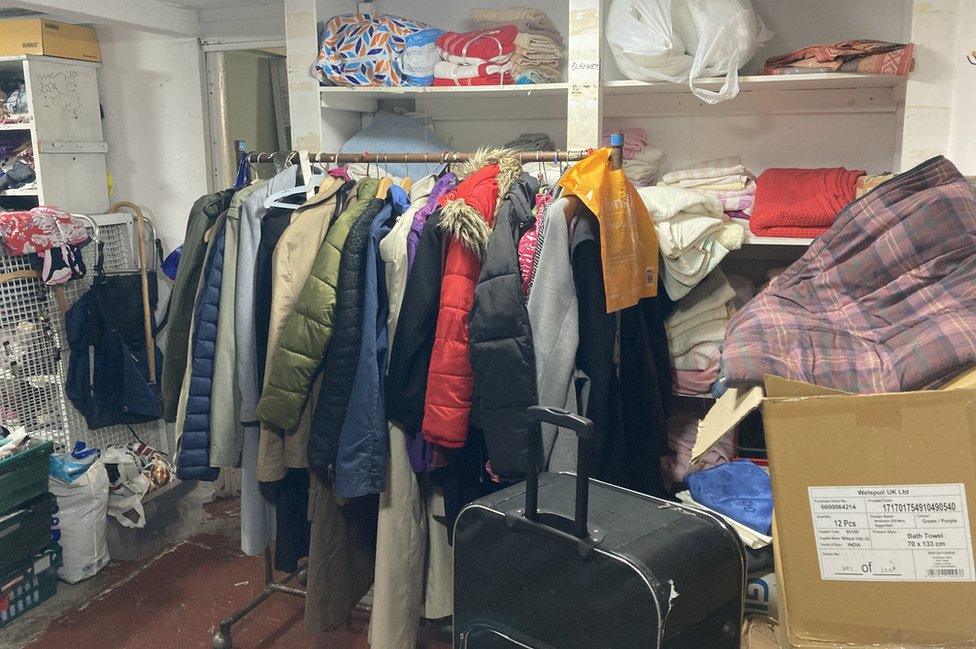
The items delivered to charity help the needy
"I imagine for some people it's very distressing to lose your items but once they do get here, they are massively recognised as a huge opportunity for helping people," he says.
"They're gratefully received and they go a long, long, long way to improving the the value of somebody's life and the the circumstances they're experiencing.
"Thank you very much to the people that lose their items - and to Thameslink for donating them."
Related topics
- Published21 December 2014
